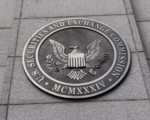The bar association highlighted in its agenda that it has been a decade since the last update to New York State’s Uniform Commercial Code (UCC) in 2014.
The Bar Association of New York City has noticed that certain policy reforms are required to maintain the city’s position as a lucrative hub for crypto and Web3 activities. At present, even though the US has not deployed concrete rules to govern crypto, several major companies are experimenting with digital asset spaces in order to connect with the younger generation of consumers. There are, however, certain issues which if resolved, can help the city maintain its crypto-friendly position, the Bar Association feels.
As part of its suggestion, the association has proposed to bring in laws that reduce transaction costs while maintaining security over them to benefit a wide array of businesses, including those concerning crypto and Web3. The security of financial transactions is overseen by the New York Uniform Commercial Code (UCC).
“The amendments will also help ensure New York’s leadership in commercial and financial progress and growth and will disincentivise migration of digital commerce to other jurisdictions which more clearly promote and encourage technological and commercial advances,” the city bar association said in its submission.
In its agenda, the bar association noted that it has been ten years since New York State’s UCC was last updated in 2014. Given the tech advancements that picked pace over this last decade, the association feels, policy amendments are the need of the hour.
“Eleven states have already enacted the Model UCC Amendments proposed by the Uniform Law Commission (ULC), and another 15 states and the District of Columbia have introduced bills covering the Model UCC Amendments. More states are expected to follow suit, and every time another state adopts the Model UCC Amendments, the more likely New York risks that market participants will prefer one of those states for transactions involving digital assets,” the agenda noted.
)
In the recent past, prominent Web3 players like Coinbase and Binance have complained of being extremely scrutinised by the Securities and Exchange Commission (SEC). On the sidelines of US’ pressure over crypto firms, several players expanded their operations abroad seeking greener pastures in terms of economic growth. The fear of losing Web3 talent to friendlier nations is something that Indian industry players are also concerned about – given that the regulations to oversee crypto are still being deployed gradually.
Meanwhile, regions such as the UK and the UAE are actively taking measures to position themselves as hubs for the digital assets sector.
















